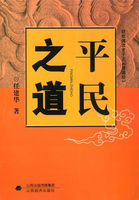But with the return of peace the English manufacturers againentered into a fearful competition with the German; for during thereciprocal blockade, in consequence of new inventions and a greatand almost exclusive export trade to foreign lands, themanufactories of the island had far outstripped that of Germany;and for this reason, as well as because of their large acquiredcapital, the former were first in a position to sell at much lowerprices, to offer much superior articles, and to give much longercredit than the latter, which had still to battle with thedifficulties of a first beginning.Consequently general ruinfollowed and loud wailings amongst the latter, especially in thelower Rhenish provinces, in those regions which, having formerlybelonged to France, were now excluded from the French market.
Besides, the Prussian customs tariff had undergone many changes inthe direction of absolute free trade, and no longer afforded anysufficient protection against English competition.At the same timethe Prussian bureaucracy long strove against the country's cry forhelp.They had become too strongly imbued with Adam Smith's theoryat the universities to discern the want of the times withsufficient promptness.There even still existed politicaleconomists in Prussia who harboured the bold design of reviving thelong-exploded 'physiocratic' system.Meanwhile the nature of thingshere too proved a mightier force than the power of theories.Thecry of distress raised by the manufacturers, hailing as it did fromdistricts still yearning after their former state of connectionwith France, whose sympathies it was necessary to conciliate, couldnot be safely disregarded too long.More and more the opinionspread at the time that the English Government were favouring in anunprecedented manner a scheme for glutting the markets on theContinent with manufactured goods in order to stifle theContinental manufactures in the cradle.This idea has beenridiculed, but it was natural enough that it should prevail, first,because this glutting really took place in such a manner as thoughit had been deliberately planned; and, secondly, because acelebrated member of Parliament, Mr Henry Brougham (afterwards LordBrougham), had openly said, in 1815, 'that it was well worth whileto incur a loss on the exportation of English manufactures in orderto stifle in the cradle the foreign manufactures.'(2*) This idea ofthis lord, since so renowned as a philanthropist, cosmopolist, andLiberal, was repeated ten years later almost in the same words byMr Hume, a member of Parliament not less distinguished forliberalism, when he expressed a wish that 'Continental manufacturesmight be nipped in the bud.'
At length the prayer of the Prussian manufacturers found ahearing -- late enough, indeed, as must be admitted when oneconsiders how painful it is to be wrestling with death year afteryear -- but at last their cry was heard to real good purpose.ThePrussian customs tariff of 1818 answered, for the time in which itwas established, all the requirements of Prussian industry, withoutin any way overdoing the principle of protection or undulyinterfering with the country's beneficial intercourse with foreigncountries.Its scale of duties was much lower than those of theEnglish and French customs systems, and necessarily so; for in thiscase there was no question of a gradual transition from aprohibitive to a protective system, but of a change from free trade(so called) to a protective system.Another great advantage of thistariff, considered as a whole, was that the duties were mostlylevied according to the weight of goods and not according to theirvalue.By this means not only were smuggling and too low valuationsobviated, but also the great object was gained, that articles ofgeneral consumption, which every country can most easilymanufacture for itself, and the manufacture of which, because oftheir great total money value, is the most important of any for thecountry, were burdened with the highest import duty, while theprotective duty fell lower and lower in proportion to the finenessand costliness of the goods, also as the difficulty of making sucharticles at home increased, and also as both the inducements andthe facilities for smuggling increased.















